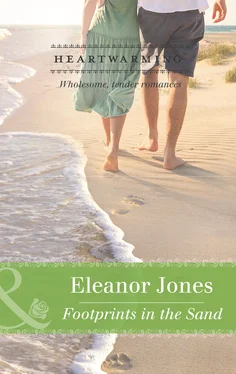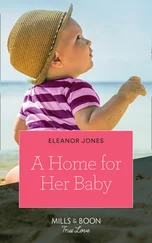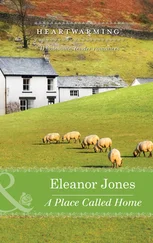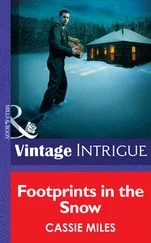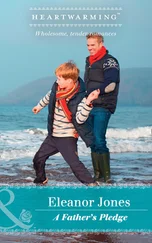“Bryn Evans.”
All the anger inside me that had faded over the past two years came rushing back. My fingers found Bryn’s again and held on so tightly that no one would ever be able to pull them away. But of course they did.
I don’t remember much about the day after that. I don’t remember Susan telling me where I was going because, without Bryn, I didn’t care. When he was driven away in a big blue car with the three other children, I thought I would probably die. I wanted to die so much, just close my eyes and join my father and Daffyd in whatever place they were.
Bryn’s face was pressed against the window. I think he was crying, but I couldn’t cry. I watched until the car became a pale blur in the distance and then disappeared altogether, and I wrapped my arms around myself, desperately searching for the familiar crossness that fought off my pain and loneliness.
“Come on, Elsa.” That was Mrs. Dibble’s voice. I didn’t need to look at her to know she was choking on her tears. “Be strong. There’s nothing any of us can do to stop this. Life goes on, no matter what we do.”
Her interruption stopped me from going over the edge and being like I used to be when I first came to Appletree. Instead I just became hollow and empty inside.
* * *
I DIDN’T TAKE MUCH NOTICE of the place they sent me to at first. There was a small plump woman named Helen with curly hair and kind eyes—she tried to be friends with me but I didn’t let her. One thing she told me sank in, though. She must have known how much I liked Bryn because she talked to me about him.
“You needed to be in our small unit, here at Braymore,” she said gently, touching my hand. I pulled it sharply away.
“And the older ones had to go into a different environment.”
I stared at my shoes.
“Now you have two choices....”
I started to hum.
“Either you can be reclusive and difficult, like you were when you first went to Appletree, or you can stay quiet, keep to yourself, but watch and learn. Then, one day, when you’re older and you meet your friend again—as you surely will if you’re really so fond of each other—you’ll have become a bright, intelligent girl, one he will be proud to know.”
That may have been one of the most important things anyone ever said to me. From that day on, I focused my every thought on making Bryn proud. I remained aloof from the other children, unapproachable, locked in my own private world, and my insecurities still plagued me, but I learned and thrived and waited for the day Bryn would see the new me.
* * *
I WAS TWELVE YEARS OLD WHEN they moved me again, and to my own surprise, I felt sorry to leave Braymore. I hadn’t noticed the austere stone house with its small paned windows becoming a home to me, but it truly felt as if I was leaving home on the morning that I stood in the dark hallway with my battered suitcase.
I felt fear deep inside, fear of an unknown future, and the hard knot that I used to call my crossness pressed against my rib cage. It was strange to feel that raw anger again, the fierce, painful lump that made me want to strike out at the rest of the world. Strange and terrifying, for I knew it could still take me over if I let it.
Helen took my face between her palms.
“Good luck, Elsa,” she said. “I hope you’ll find your friend again. And he will be proud of you, believe me.”
That was one of the golden moments in my life. For the first time I could make someone proud, and now all I had to do was find him. In the end, it was easier than I thought.
I stepped into the social worker’s long red car and sat with my suitcase on my knees.
Dermot, the young man who had taken Susan’s place, grinned at me.
“Don’t look so worried,” he said. “The place you’re going is very nice, and you’ll settle in soon.”
I wanted to ask why they hadn’t let me stay at Braymore, but as usual, my mouth dried up and the words wouldn’t come. He answered my unasked question anyway.
“You’re too old to be at Braymore now. It’s for younger children. At the new home you’ll be able to take your school exams and even go on to college if you want. The world is your oyster, Elsa May Malone.”
It didn’t feel like an oyster, it felt like a gloppy pudding with no sides and no form.
The new home was modern, white and stark. I thought it looked cold and unwelcoming after Braymore, and I held the handle of my suitcase so tightly that my hand hurt. I wanted it to hurt, for it filled the emptiness inside me and stopped the anger from coming back. I had to keep the crossness away if I wanted to make Bryn proud. He wouldn’t like a girl who screamed with anger at the whole wide world.
There were children playing on a green lawn beside the house. They laughed and shouted and ran, throwing balls to each other and swinging very high from a huge old tree. Two girls sat side by side, writing in blue exercise books and giggling. They glanced at me and glanced away as if I was invisible. I was so alone and afraid that the breath became stuck in my chest and dizziness clouded my vision.
Then I heard a familiar voice, the dear familiar voice that had haunted my dreams for so long.
CHAPTER SEVEN
WHEN BRYN FIRST ARRIVED at Long Meadows, he didn’t want to like it there. He wanted to stay safe in the familiarity of Appletree, with Mrs. Dibble and all his friends—especially Elsa.
Elsa. She preyed on his mind all the time. Ever since that first day at Appletree, when she’d stood there in front of him, a snarling, spitting lion cub, he had somehow felt she was his responsibility. It was up to him to help her overcome whatever demons drove her into the sad and lonely space that no one else could enter. And he had come so close to getting there. The day before Mrs. Dibble announced that Appletree would be closing, Elsa had started to talk to him—real words, not just her usual “yes” or “no.” She had even begun to tell him about a place she loved, Jenny Brown’s Bay, named after a woman who’d lived there hundreds of years ago. It had taken more than two years for Elsa to really trust him, and then they’d been torn apart. She would probably end up just like she was when he first saw her in the dining hall at Appletree.
Tears welled in his eyes and he tightened his fists. Boys didn’t cry; his father had taught him that. Boys faced up to their responsibilities. As the car slid to a halt, memories of his father came back to him—a tall, strict imposing, man. And his mother...his mother was a dreamer, an artist who lived in an airy-fairy world. She had dark hair and eyes, like him, and was slightly built. Was he a dreamer, too?
The car door opened and the sun streamed in, sun that would stay with Bryn for his entire time at Long Meadows, even when the rain came down.
The building was white and freshly painted, with wooden window frames and a deep green front door. It opened as the children approached, revealing a plump, motherly woman with the biggest smile Bryn had ever seen.
“Hello, children,” she welcomed them. “Lunch is ready. After that I’ll get someone to show you around.”
Her voice held the soft lilt of Wales, Bryn’s home country. It made him feel comfortable and more relaxed than he’d been since they’d dragged Elsa away from him. She’d looked so dejected as they drove off, a small, lonely figure with none of her fierceness showing at all. What would happen to her now? What would she do without him?
“Come on, Bryn,” urged Billy Sharp, patting him on the back. “Stop mooning over that crazy Elsa, you’re well rid of her anyway. Let’s go see our new home.”
“He’s right, you know,” added Ashley.
She looked at him with a knowing expression, gazing down from her lofty height. He suddenly felt uncomfortable under her close scrutiny.
Читать дальше
